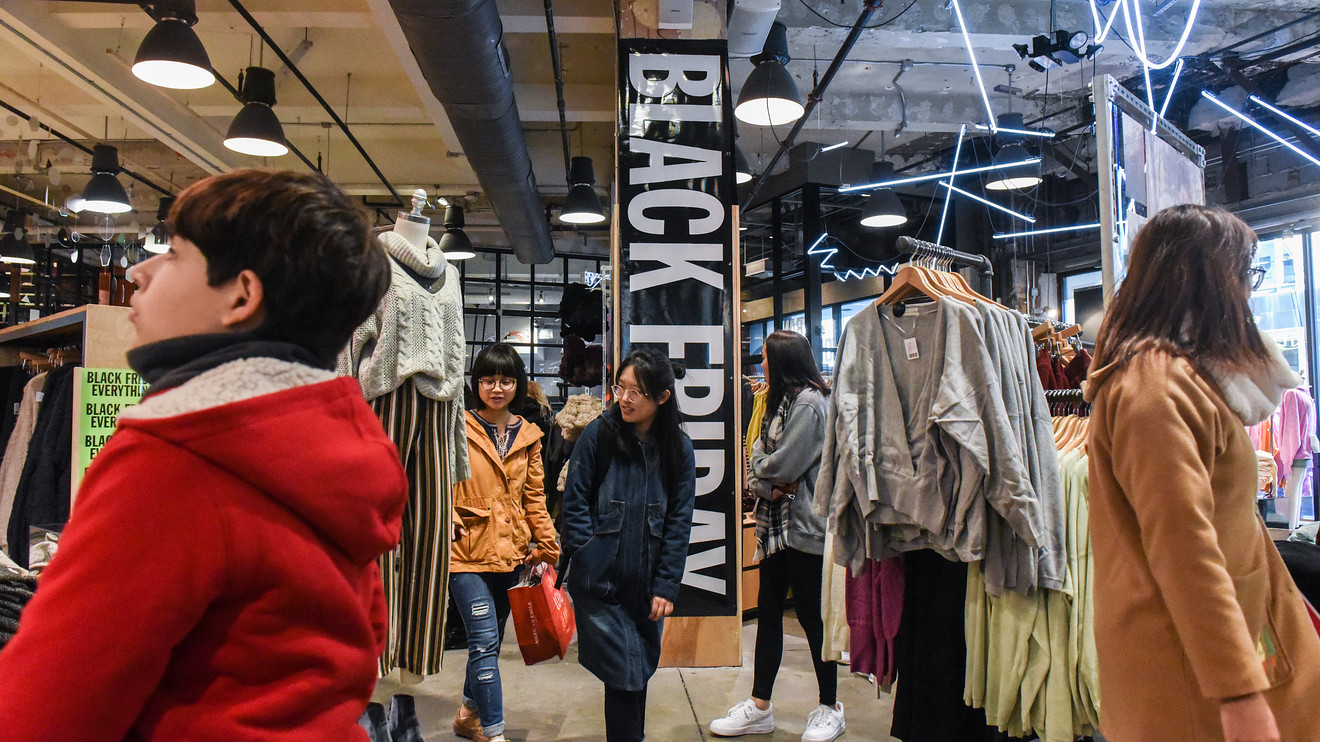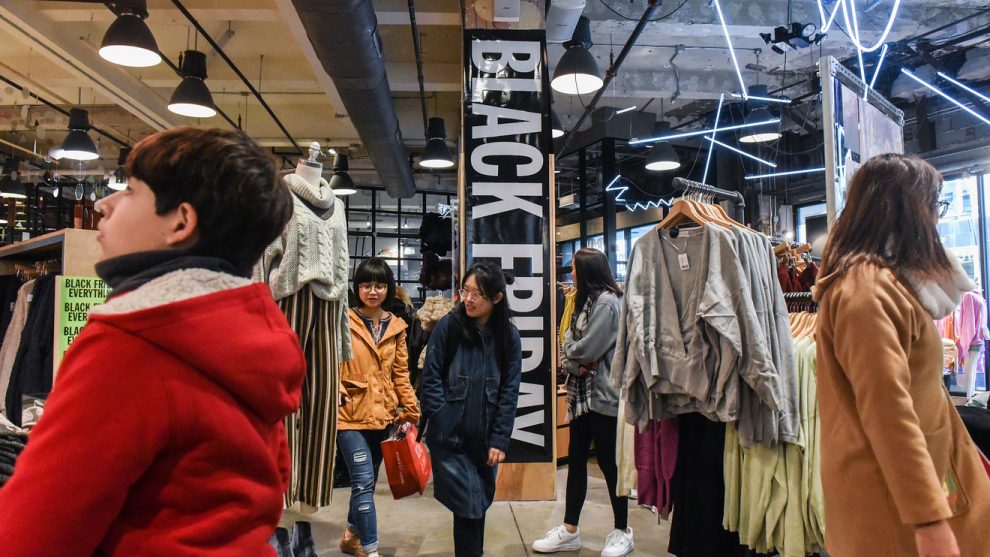
Borrowing is the new buying.
Urban Outfitters URBN, +0.19% is launching a clothing rental platform this summer joining a growing number of retailers like American Eagle, Rent the Runway and Rebag making it easier for consumers to rent items for a fraction of what they cost to buy.
The service, called Nuuly, will cost $88 per month and lets consumers buy six clothing items or accessories to keep for 30 days. There’s also an option to buy all or a select few of the rented items. The company –– which also owns Free People and Anthropologie –– will dry-clean and wash returned items before they are redistributed.
Urban estimates it will add 50,000 users and have more than $50 million in annual revenue, The Wall Street Journal reported.
The millennial and Gen Z-driven clothing retailer, which also sells home goods and beauty products, is the latest company to start renting out its inventory. American Eagle AEO, +0.15% launched “American Eagle Style Drop” earlier this year, its new clothing rental service for women. It partnered with subscription-based technology platform CaaStle to allow consumers to choose from jeans, tops, bottoms and dresses, and rent out three items at a time for $49.95 per month.
Items can be swapped out at via free shipping in exchange for new ones. There’s also an option to buy an item you want. For context, a pair of women’s blue jeans range between $39 to $59 each; dresses cost upwards of $44; and tops are priced between $19.95 and $35.
This sartorial subscription service is in its pilot stage to gauge the interest of a younger Generation Z and millennial demographic ages 15 to 25, AE execs confirmed, adding that there’s potential for the rental service to become a permanent fixture.
“Gen Z is increasingly interested in options that allow them to look great, but have less of an impact on the environment,” Kyle Andrew, executive vice president and CMO at American Eagle told MarketWatch. “As the test continues, and we learn more about what our customer is looking to rent from us, we’ll adjust the assortment accordingly.”
Renting can be easier on the environment than buying
Roughly 60% of Generation Z spend money on brands that are ethically conscious, according to a report from the National Retail Federation. So having an eco-friendly service that aims to reduce waste could be one way for brands to earn trust from a younger demographic, while helping them to turn a larger profit on a piece of clothing by renting it out multiple times instead of selling it and having it languish in the back of a customer’s closet.
Take DIY furniture giant Ikea. The company is testing out a leasing program that would allow customers to rent out office furniture like desks, chairs and, potentially, kitchen products. The initiative, announced in February, is being tested in Switzerland for now.
It’s part of the Swedish brand’s effort to make items that can be recycled, reused or resold to promote a longer shelf like for its furniture. Ikea has said it plans to source all of its wood and paper from more sustainable sources by 2020, and hopes to eliminate its use of fossil fuels by 2023.
Also read:
Ikea’s new leasing program could also put a dent in combating the 9.8 million tons of furniture that gets thrown away per year, according to a 2009 report by the U.S. Environmental Protection Agency. It may also help Ikea earn more money from renting the same desk and chairs multiple times than it would if one shopper bought the item outright.
Similarly, a Brooklyn-based furniture renting company called Feather that launched in 2018 allows shoppers to rent packages of furniture or individual pieces like baby cribs, sofas and mattresses for a monthly fee of $149 with the option to buy products outright.
Taking luxury goods for a spin
Others like Rebag, a New York-based designer handbag buyer and seller, are attempting to make luxury accessible. (The only catch is you have to give the items back after renting them, obviously.)
The site recently introduced its Rebag Infinity program, which allows shoppers to tote around purses by Gucci, Louis Vuitton LVMH, +1.47% Dior or Prada for up to six months, then exchange them for any item worth up to 70% of they originally paid. Bags range in price from $300 to up to $60,000.
Rebag sees it as a way to give customers a taste of luxury and, hopefully, encourage them to spend big bucks later on. “Consumers see high-end bags as investments, and Rebag both provides an entry point to the luxury ecosystem and sustains it,” a spokesperson for the brand said in a statement.
When is renting worth it?
Rent the Runway is probably the most famous company renting out designer cocktail dresses and ball gowns. Since the e-commerce site launched in 2009 with dresses and accessories, the brand has expanded to ready-to-wear clothing items from blazers, slacks, pantsuits and blouses for every day office looks to designer jeans from brands like Rag & Bone for more casual looks.
It rolled out an unlimited subscription in 2017 for $159 per month with a limit of four items of clothing that can be rented at a time, and $99 for a trial month for new members.
Last October, the brand partnered with shared office space company WeWork to put clothing drop-off boxes in more than a dozen locations around the country to help working customers conveniently return and reorder new threads.
Consumer experts say paying for a rental subscription service is only worth it if you know you’ll only use the item for a short time period, like renting furniture for a college dorm or leasing an expensive dress for a wedding.
“It depends on your necessities, and your personal lifestyle,” said Martin Ihrig, associate Dean of Business Programs at the NYU School of Professional Studies. “If you’re a person that likes having the latest fashion maybe it’s better to rent, but for most people it might make sense to buy a few staples and keep them longer. You have to consider if you want to stick with the same dress or same handbag as opposed to having the latest and greatest for a shorter amount of time.”
(This story was updated on May 21, 2019.)
Get a daily roundup of the top reads in personal finance delivered to your inbox. Subscribe to MarketWatch’s free Personal Finance Daily newsletter. Sign up here.












